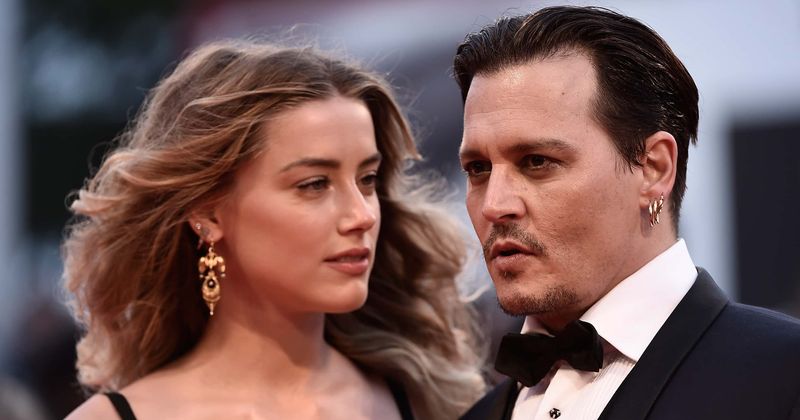In the ever-expanding world of documentaries, filmmaker Emma Cooper has boldly ventured into the territory of high-profile celebrity trials with her latest creation, “Depp v. Heard.” This three-part docuseries, now streaming on Netflix, dissects the sensational defamation case between Hollywood stars Johnny Depp and Amber Heard. While the trial itself garnered widespread attention and polarizing opinions, Cooper’s series aims to delve deeper into the societal phenomena surrounding the trial, rather than delivering shocking new revelations.
Cooper, known for her previous work on projects like “The Mystery of Marilyn Monroe: The Unheard Tapes” and “The Disappearance of Madeleine McCann,” was intrigued by the intense public interest and commentary surrounding the trial. She found herself drawn to the trial’s live feed and the conversations that ensued on social media, leading her to explore the phenomenon from a documentary perspective.
READ MORE: Inside Scoop: Michael Rapaport Spills Details from Brad Pitt and Jennifer Aniston’s Lavish Wedding
With the title alone, “Depp v. Heard,” Cooper acknowledges that her project is likely to draw reactions from both sides of the debate. The documentary avoids conventional expert interviews, and the absence of exclusive sit-downs with Depp, Heard, or their legal teams is conspicuous. Instead, the series utilizes trial footage, YouTube comments, TikToks, and archival media coverage to construct a mosaic of public sentiment.
Cooper intentionally refrained from seeking interviews with Depp and Heard’s representatives, preferring to focus on the wider cultural conversation. She approached the project as an exploration of societal reactions, steering away from the he-said-she-said nature of the trial itself. The goal was to emphasize the collective dialogue and the way people perceive events that may not directly involve them.
The decision to create a series without exclusive interviews reflects Cooper’s aim to transcend the courtroom drama. She wanted to shine a light on how we communicate, form opinions, and participate in public discourse, even when our direct involvement is limited. As she states, “That is actually what the series is about.”
While the Depp v. Heard trial took place within the larger context of the #MeToo movement, Cooper believes that Depp’s celebrity status significantly influenced the case’s global fascination. She suggests that the public’s deep admiration for Depp, built over his 25-year career, played a substantial role in the trial’s attention.
Cooper’s series highlights varying perspectives through media interviews with lawyers from both sides, showcasing their contrasting opinions on the verdict. The filmmakers also explore how social media may have impacted the trial’s outcome, although Cooper maintains that she cannot definitively answer that question due to a lack of direct juror input.
Ultimately, Cooper’s “Depp v. Heard” tackles the nuances of public opinion, social media’s influence, and the power of perception. The documentary seeks to unravel the layers beyond the trial itself, inviting viewers to reflect on their role in the conversation. As Cooper concludes, “As people, we’re aware of the power of public opinion,” and her series aims to illuminate that awareness on a larger scale.
